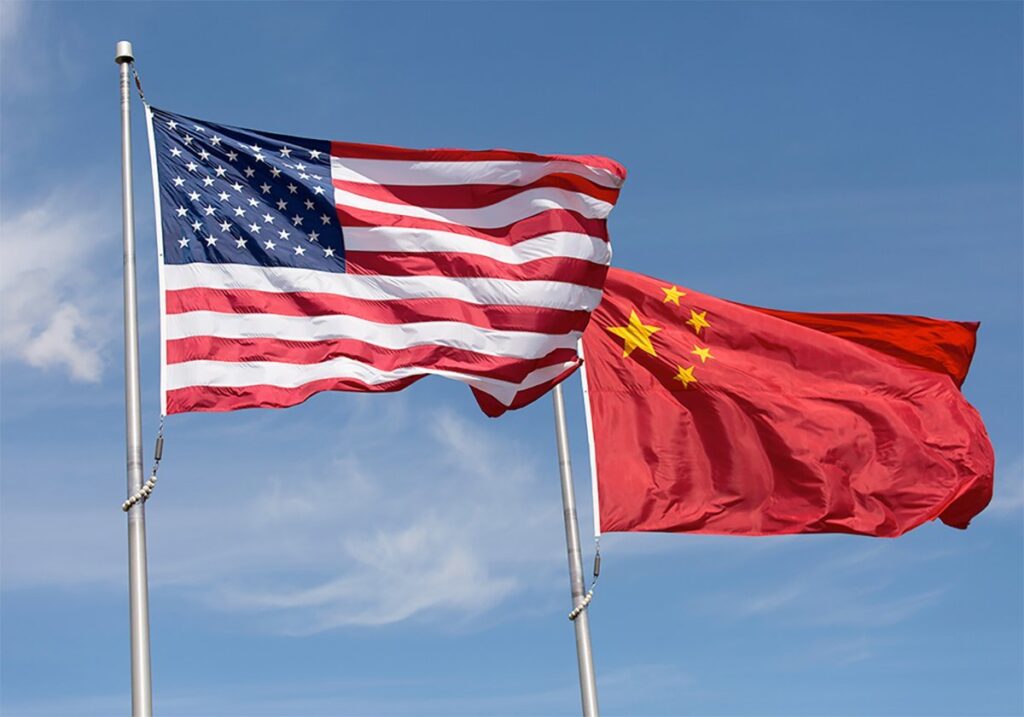US signals willingness to de-escalate trade war with China

Washington | Reuters—U.S. Treasury Secretary Scott Bessent said on Wednesday that high tariffs between the United States and China are not sustainable, as President Donald Trump’s administration signaled openness to de-escalating a trade war between the world’s two largest economies that has raised fears of recession.
For more tariff coverage, visit the Western Producer’s tariff page
U.S. stocks rallied on hopes that the two countries might lower the steep trade barriers they have erected over the past month, though there was no sign that negotiations might start anytime soon.
Read Also


Canadian farmers’ view of the federal government differs by province — but not by much
Farmers from Alberta, Manitoba, Ontario and Quebec answer the question “do you feel represented by the federal government?”
Soybean futures also jumped, reaching two-month highs by midday Wednesday.
“Some of the bullish undertone behind soybeans is related to easing concerns over the China/U.S. tariff spat, although if any deal gets done, China is already done buying U.S. soybeans,” said Terry Reilly, senior agricultural strategist at Marex.
He added that soybean futures received some support from technical buying.
Tariffs must come down for talks to proceed
Bessent said the tariffs—145 per cent on Chinese products and 125 per cent on U.S. products—would have to come down before trade talks can proceed, but said Trump would not make that move unilaterally.
“Neither side believes that these are sustainable levels. As I said yesterday, this is the equivalent of an embargo and a break between the two countries in trade does not suit anyone’s interest,” Bessent told reporters.
The Wall Street Journal reported that the White House is considering cutting tariff levels to as low as 50 per cent on Chinese imports in a bid to lower tensions. A White House spokesperson dismissed any reports as “pure speculation” and said news on tariffs would come from Trump himself.
“We are going to have a fair deal with China,” Trump told reporters, but did not outline any specifics.
The tariff levels outlined in the Journal report would likely still be high enough to deter a significant chunk of trade between the world’s two largest economies. German shipper Hapag-Lloyd said Wednesday that 30 per cent of its U.S.-bound shipments from China have been cancelled.
Separate talks between the two countries over tackling the fentanyl epidemic have not yielded results so far, sources say.
Bessent said the third quarter of this year is a “reasonable estimate” for achieving clarity on the ultimate level of Trump’s tariffs.
Other countries looking to negotiate
In addition to the steep tariffs on China, Trump has also imposed a blanket 10 per cent tariff on all other U.S. imports and higher duties on steel, aluminum and autos. He has suspended targeted tariffs on dozens of other countries until July 9 and floated additional industry-specific levies on pharmaceuticals and semiconductors. That has roiled financial markets and raised fears of recession.
The European Union, which Trump has threatened with 20 per cent tariffs, would respond with countertariffs if it cannot reach a deal with the United States before the July 9 deadline, economy minister Valdis Dombrovskis said on Wednesday. He said the 27-member trade bloc has offered to buy more liquid natural gas from the United States and reduce tariffs on certain goods.
Other countries are looking to negotiate as well. Vietnam’s trade minister spoke to U.S. Trade Representative Jamieson Greer on Wednesday, state media reported.
The International Monetary Fund said Wednesday the tariffs will slow growth and push debt higher across the globe. S&P Global found that U.S. business activity slowed to a 16-month low in April while prices charged for goods and services soared.
—Reporting by Andy Sullivan
Source: Farmtario.com


